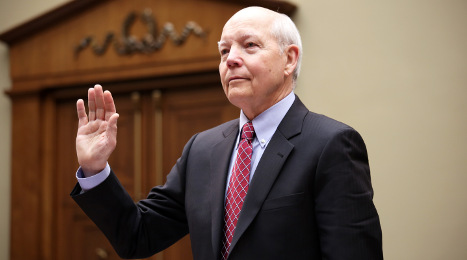Tax Max Offers Calm Response as IRS Warns of Refund Delays

IRS commissioner John Koskinen warned the Senate Finance Committee about potential delays in tax refunds unless lawmakers act soon.
By subscribing, you agree to receive communications from Auto Remarketing and our partners in accordance with our Privacy Policy. We may share your information with select partners and sponsors who may contact you about their products and services. You may unsubscribe at any time.
WASHINGTON, D.C., and TAMPA, Fla. –
The Internal Revenue Service recently issued a strong warning to Congress about the potential for tax refund delays unless lawmakers make decisions in an orderly fashion.
Despite the dire tone the IRS took, Chip Wiley — the corporate trainer and marketing specialist for Tax Refund Services and Tax Max — tried to give buy-here, pay-here dealers some calming assessments about the potential flow of tax refund money since many operators already are beginning to deliver vehicles associated with projected refunds.
First here are the highlights of what IRS commissioner John Koskinen stated in a letter to Sen. Ron Wyden, who is chairman of the Senate Finance Committee addressing his concerns.
“The IRS is currently facing a great deal of uncertainty related to the expired provisions, which raises serious operational and compliance risks. Continued uncertainty would impose even more stress not only on the IRS, but also on the entire tax community, including tax professionals, software providers, and tax volunteers, who are all critical to the successful operation of our nation's tax system,” Koskinen said.
“This uncertainty, if it persists into December or later, could force the IRS to postpone the opening of the 2015 filing season and delay the processing of tax refunds for millions of taxpayers. Moreover, if Congress enacts any policy changes to the existing extenders or adds new provisions, the IRS would have to reprogram systems and make processing changes, which would result in longer delays,” he continued.
“If Congress waits until 2015 and then enacts retroactive tax law changes affecting 2014, the operational and compliance challenges would be even more severe — likely resulting in service disruptions, millions of taxpayers needing to file amended returns, and substantially delayed refunds,” Koskinen went on to say.
Subscribe to Auto Remarketing to stay informed and stay ahead.
By subscribing, you agree to receive communications from Auto Remarketing and our partners in accordance with our Privacy Policy. We may share your information with select partners and sponsors who may contact you about their products and services. You may unsubscribe at any time.
However, Wiley maintained that the dialogue between the IRS and federal lawmakers isn’t new.
“This is a common event that seems to happen every year towards the end of the year,” Wiley said in a message to BHPH Report.
Wiley explained there are provisions in the tax code that expire at different times and Congress “seems to wait until the last minute to renew these items.” Some specific items Wiley mentioned included:
—Sales tax as an itemized deduction
—Tuition and fees deduction
—$250 educator credit
—Energy credits
So should be BHPH operators be as concerned as the leader of the IRS might have portrayed himself to be in the message to Congress? Wiley doesn’t think so.
“The IRS makes Congress aware that late passage of these items will cause a delay,” Wiley said. “If you remember in 2012, the Fiscal Cliff issue standoff brought these items into January and the IRS then had a delayed opening.
“My gut tells me that these will all be renewed ‘just in time’ to not cause any delays,” he added.
Editor’s Note: BHPH Report will have more special reports about this year’s tax season in the publication’s next three issues, including recommendations how to make the most of this year’s tax season as well as changes regarding Form 1099-C. If you don’t already receive your free printed copy, go to this website to complete the registration.


